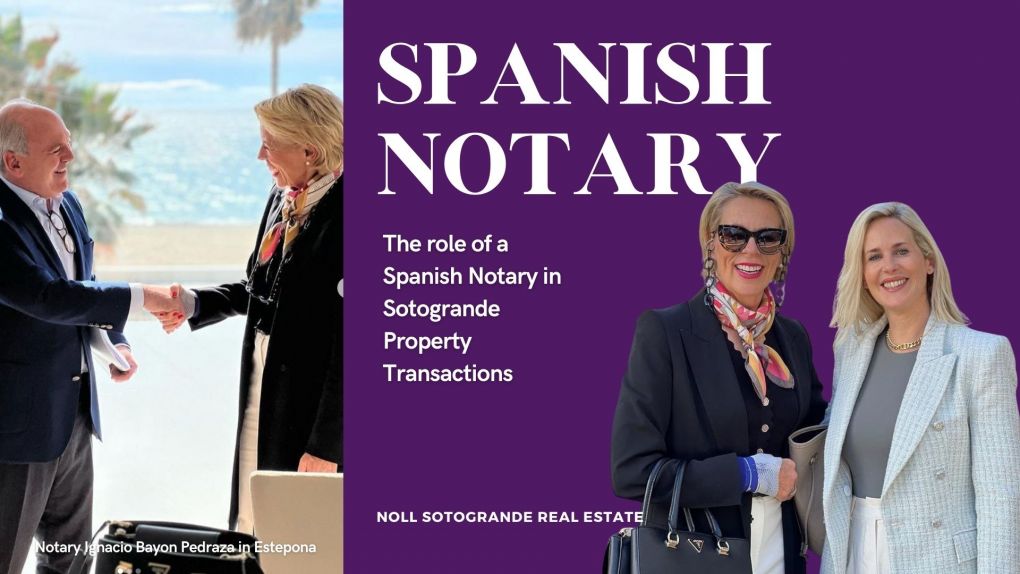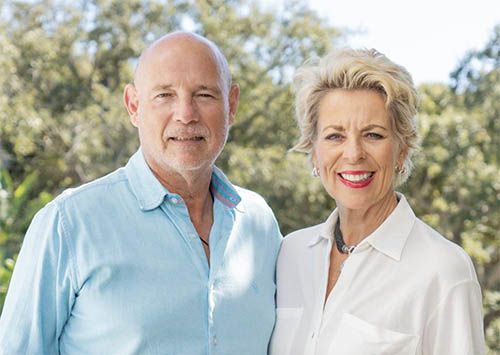
The role of a Spanish Notary in Sotogrande Property Transactions
Spanish notaries enjoy a prominent position in society. They are essentially public officials who play a neutral role in drafting and witnessing various types of contracts in Spain. Their mission? To ensure both parties in an agreement comprehend the contract terms, guarantee compliance with the law, and oversee the payment of appropriate taxes generated by the transaction.
The Crucial Role of the Spanish Notary
In other countries, buying a property typically involves exchanging contracts, paying the seller, and receiving the keys. Afterwards, you can register the ownership at the land register. This process is undertaken by two solicitors representing the buyer and seller. However, Spain has a different process.
In Spain, you can’t register your property in the property register unless a Spanish notary witnesses the sale’s deeds.
A notary’s signature in Spain is essential to transform a private contract into public deeds, enabling registration in the property register. In essence, no notary signature means no registration in the property register. You might wonder if registering your property in the registro de la propiedad is truly necessary. In theory, it’s not, as a private contract between buyer and seller is legally binding on both parties (though not on third parties). Some Spaniards, especially in rural areas, own unregistered property to save on expenses like notary fees, registry fees, and taxes. However, for any buyer, registering their property is vital for secure ownership, protection from the seller’s creditors, and the option to secure a mortgage against the property. Therefore, all buyers should finalize their purchase in the presence of a notary to enjoy these benefits.
When Can You Sign?
The timing of the signing depends on whether you’re buying an existing property or a new one under construction or off-plan.
When buying a resale property, you can sign the deeds before a notary at a convenient time for both you and the seller, often within 1 to 3 months after signing a private contract.
When the seller is a foreigner with a large mortgage, its advisable to secure the property with a private contract, with deposits and proceed to signing the “escritura”, (the public deed) before a notary. Once the mortgage in in place.
When purchasing a newly built property from a developer, you can sign the escritura and make the final payment once the property receives certification from the head architect, confirming its completion. Unless you’ve agreed to sign deeds for a property under construction (which is not recommended), you’re not obliged to sign the escritura until the developer provides the certificado de final de obras, signed by the architect.
Preparation for Signing
Regardless of the property type, you should only sign the deed once your lawyer has conducted all the necessary legal checks on the vendor’s title, debts, and licenses. It’s crucial to agree on a payment method with the seller beforehand, such as bank-guaranteed cheques from a Spanish branch or transferring funds to the notary’s escrow account. Ensure you have the required documents, typically your passport, but always verify the notary’s specific requirements with your lawyer. While attending the signing in person is ideal, you can grant someone power of attorney to sign on your behalf, preferably before a notary in Spain.
Inside the Notary’s Office
Upon arriving at the notary’s office, you’ll join all parties involved to await the notary. There might be moments of silence or small talk with the seller. The notary will then take the lead and commence the proceedings.
The notary will verify the identity and personal details of all buyers and sellers, then read the deeds aloud. Some notaries might offer a partial translation into English, while most will read them in Spanish. Ensure the accuracy of the deeds before signing, either with a translator present or your lawyer. Some notaries may refuse to sign the deeds if a foreign buyer lacks legal representation.
The notary will conduct legal checks, though these vary by autonomous region. At a minimum, they should request a property registry filing just before the signing to confirm the vendor’s title and check for any unexpected encumbrances. While some claim that buyers are adequately protected by the notary alone, it’s not entirely true. The notary provides limited protection, so having an experienced and qualified professional by your side during the signing is crucial.
If no objections arise regarding the deeds’ content, the notary will circulate them for signing by all parties. They will also confirm any outstanding payments from the buyer before handing over the keys. Ensure you have bank drafts ready to cover any remaining amounts beyond deposits or down payments.
After Signing the Deeds
Once you’ve signed the deeds, the property is officially yours. However, taxes must still be paid, and your title needs to be registered in the property register.
You’ll receive a copy (copia simple) of the deeds after the signing, each costing around 30 Euros. This copy is useful for setting up utility contracts and paying taxes. Later, your lawyer can collect the original deeds signed by the notary (copia autorizada), which are required for registering your title in the property register. In the meantime, the notary should have sent notification of your purchase to the property registry immediately after the sale, blocking the register for 10 days and preventing others from claiming the same property during this period.
Spanish Notary Costs
Notary fees in Spain are determined by the government based on the number of clauses in the deeds and the declared property value. Roughly, they range from 0.1% of the declared price for properties of 400,000 Euros or more to around 0.4% for properties under 100,000 Euros. If you have a mortgage, you’ll also pay notary fees on the mortgage deeds.
Thank you for reading.
Charlie Gubbins
E-Mail: charles.gubbins@noll-sotogrande.com
Noll Sotogrande Real Estate
We deliver the dream of home-ownership in Sotogrande
 Charles Gubbins and Stephanie Noll – Sotogrande Real Estate Experts |
*Disclaimer: Please note the material contained in this guide is for informational purposes only. This information is general in nature and has not taken into consideration your specific personal circumstances.

